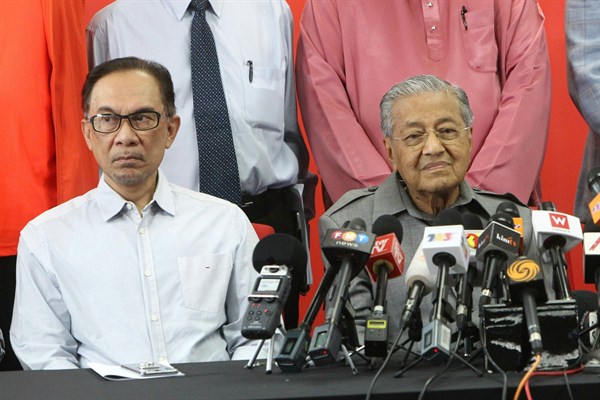Malaysia’s veteran 94-year-old prime minister, Mahathir Mohamad, returned to power in May 2018 after promising voters that his archfoe-turned-ally, Anwar Ibrahim, would succeed him partway through his five-year term. Mahathir’s Pakatan Harapan coalition agreed on the succession plan ahead of its upset victory over Najib Razak’s scandal-plagued government in the 2018 elections. Mahathir himself said shortly after being sworn in that he would lead for an “initial stage, lasting one or two years,” before stepping down. Yet as the two-year mark approaches, no date has been set for that handover and calls for a transition are growing louder.
Mahathir’s proposed time frame for stepping down keeps shifting. Last May, a year after becoming prime minister, he suggested he could continue for “at least” another year, indicating a desire to stay on past mid-2020. Then, in December, Mahathir told Reuters in an interview that he would not vacate his post before November’s Asia-Pacific Economic Cooperation summit, due to be held in Kuala Lumpur. He raised eyebrows in Malaysia by adding that “if people don’t want [Anwar], that’s their business,” implying that not all parliamentarians support a change in leadership.
Anwar, for his part, affirmed last month that both Pakatan Harapan and Mahathir will “honor the transition process,” and has urged politicians not to discuss the issue publicly. But many members of Anwar’s Parti Keadilan Rakyat or People’s Justice Party, known in Malaysia as the PKR, are openly restless. Anwar loyalists have asked Mahathir to set a transition date, while supporters of a rival PKR faction led by Anwar’s deputy, Azmin Ali, are stirring up anti-Anwar sentiment and calling on Mahathir to serve his full five-year term.

